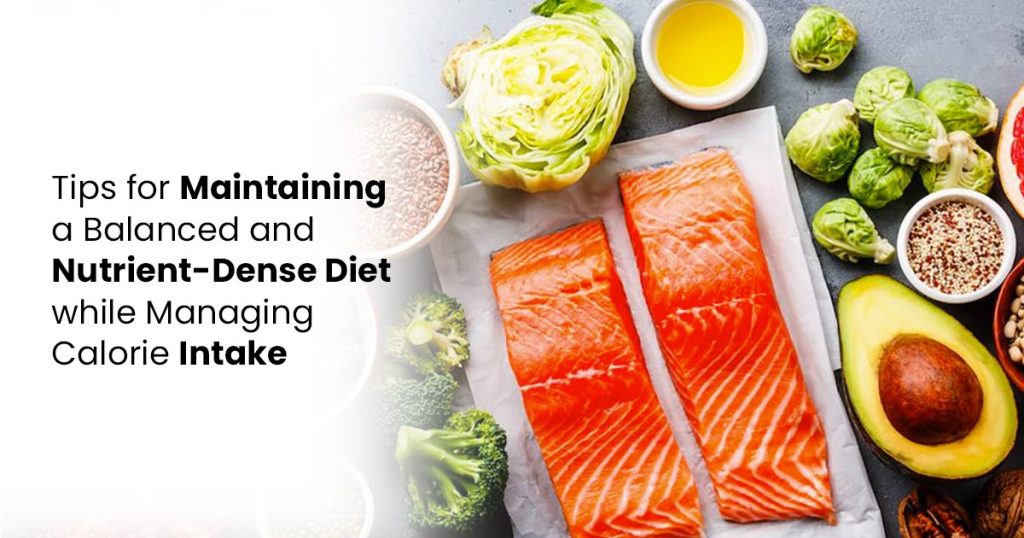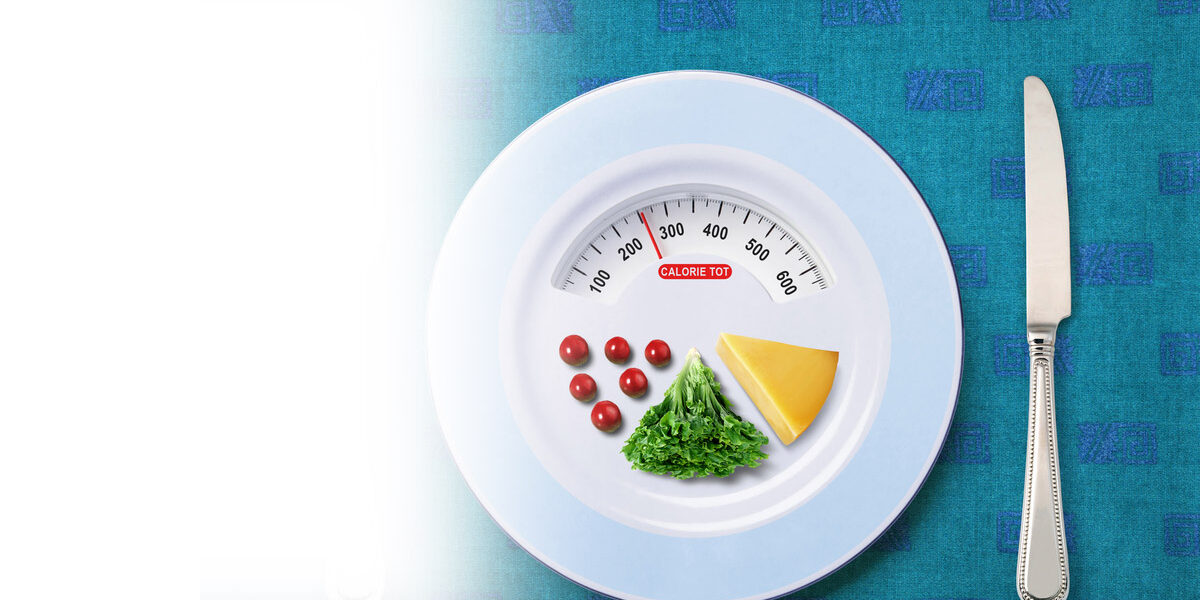Are you struggling to manage your weight and achieve optimal health? The key could lie in understanding and calculating your daily calorie intake. By knowing how many calories your body needs each day, you can effectively fuel your body and make informed dietary choices. In this comprehensive guide, we will walk you through the process of calculating your daily calorie intake to ensure optimal health and weight management.
Whether you are looking to lose weight, gain muscle, or maintain your current weight, understanding your calorie needs is essential. This guide will break down the factors that influence your calorie intake, such as age, gender, activity level, and metabolic rate. We will provide easy-to-follow equations and formulas to help you determine your specific calorie requirements.
Additionally, the quality of calories will be discussed and the importance of macronutrients in your diet. By focusing on the right types of foods, you can nourish your body and promote overall health.
Are you ready to take control of your diet and reach your health and weight goals? Let’s dive into the ultimate guide to calculate your caloric intake for optimal health and weight management.
Why Is Calculating Daily Calorie Intake Important For Health And Weight Management?
Understanding the importance of calculating your daily calorie intake is crucial for achieving optimal health and managing your weight. Calories are units of energy that our body requires to perform all kinds of functions, such as digestion, breathing, and physical activity. When we eat more calories than required, the excess are stored as fats, leading to weight gain. On the other hand, consuming lesser calories than our body needs can result in weight loss.
Calculating your daily calorie intake allows you to have a clear understanding of how much energy your body requires to maintain weight or reach a specific weight goal. By accurately determining your calorie needs, you can use it to create a caloric deficit or surplus to align with your weight management goals. This knowledge allows you to create informed decisions regarding your diet and ensures that you are providing your body with the right amount of fuel.
Additionally, calculating your daily calorie intake can help you identify potential imbalances in your diet. It allows you to assess the quality and quantity of the foods you consume, ensuring that you are getting the necessary nutrients while avoiding excessive or inadequate calorie intake. By maintaining a balanced diet, you can support overall health, enhance energy levels, and limit risks of chronic diseases.
Understanding Calories And Their Role In the Body

Before diving into the process of calculating your daily calorie intake, it is essential to understand calories and their function in the body. Calories are a measurement unit used to quantify the total energy provided by food and beverages.
When we consume food, our body breaks it down into its basic components, including macronutrients like fats, proteins and carbohydrates. These macronutrients are then metabolized by the body to produce energy. A certain amount of calories are provided by each macronutrient per gram:
- Carbohydrates: 4 calories per gram
- Proteins: 4 calories per gram
- Fats: 9 calories per gram
It is significant to remember that alcohol has 7 calories per gram. However, alcohol does not provide any essential nutrients and is often referred to as “empty calories.”
The calories we consume through our diet are the primary source of energy for our body. They fuel essential bodily functions, such as homeostasis, supporting organ function, and enabling physical activity. By understanding the role of calories in the body, you will learn the importance of keeping count of your daily caloric intake to manage your weight.
Factors That Impact Daily Caloric Needs
Determining your daily caloric requirements involves taking into account various factors that impact your individual requirements. These factors play a role in establishing the calorie count necessary for maintaining your current weight or achieving your ideal weight. Let’s explore the key factors that influence daily calorie needs:
AGE
As we age, our metabolism slows down. This means that older individuals generally require fewer calories compared to younger individuals to maintain the same weight and level of activity.
Gender
Men typically have higher caloric requirements as compared to women due to a difference in body composition and general metabolism rate. Men generally have a higher muscle mass that burns more calories at rest compared to fat tissue.
Activity Level
The amount of physical activity you engage in on a daily basis significantly impacts your calorie needs. Those with a more active lifestyle, such as athletes or individuals with physically demanding jobs, require more calories to fuel their higher energy expenditure.
Metabolic Rate
The metabolic rate is the the number of calories your body burns at its resting phase to maintain its bodily functions. It is influenced by factors such as genetics, muscle mass, and hormonal balance. Individuals with a higher metabolic rate generally require more calories to cater to their daily energy needs.
By considering these factors and understanding how they affect your calorie needs, you can obtain a more accurate estimate of your daily calorie intake requirements.
Determining Your Basal Metabolic Rate (BMR)
The first step in calculating your daily calorie intake is determining your Basal Metabolic Rate (BMR). Your basal metabolic rate (BMR) is the amount of energy your body requires to carry out its essential tasks when at rest. It accounts for the calories required for essential bodily functions, such as breathing, blood circulation, and cell production.
Your BMR can be estimated using a number of formulas, including the Harris-Benedict equation. The Harris-Benedict equation takes into account your gender, weight, height, and age to calculate your BMR. Here is the formula for the Harris-Benedict equation:
In the case of men, BMR is equal to 88.362 + (13.397 x kg) + (4.799 x cm) – (5.677 x years).
In case of women, BMR is equal to 447.593 + 9.247 x kg of weight + 3.098 x cm of height – 4.330 x years of age.
Once you have determined your BMR, you can use this value as a starting point to calculate your Total Daily Energy Expenditure (TDEE) and adjust your calorie intake accordingly.
Calculating Your Total Daily Energy Expenditure (TDEE)
To accurately determine your daily calorie intake, you first need to calculate your Total Daily Energy Expenditure (TDEE). TDEE represents the number of calories your body needs to maintain its current weight based on your activity level and metabolic rate.
There are several methods to calculate TDEE, but one of the most commonly used is the Harris-Benedict equation. This equation takes into account your age, gender, weight, and height to estimate your basal metabolic rate (BMR) – the number of calories your body needs at rest. To determine your TDEE, you then multiply your BMR by an activity factor that reflects your level of physical activity.
Typically, the activity components fall into two categories: very active (physical labor or rigorous exercise) and sedentary (little to no exercise). It’s important to choose the activity factor that best matches your lifestyle to avoid underestimating or overestimating your calorie needs.
Once you have calculated your TDEE, you can adjust your calorie intake based on your weight goals.
Adjusting Caloric Intake for Weight Gain or Weight Loss Goals
If you want to lose weight, you need to achieve a caloric deficit by consuming lesser calories than your TDEE. A calorie deficit of 500-1000 calories per day is generally recommended for a safe and sustainable weight loss of 1-2 pounds per week. However, it’s important not to go below your body’s minimum caloric needs to ensure you are still getting essential nutrients.
You can either consume fewer calories or engage in more physical exercise to create a calorie deficit. It’s often a combination of both that yields the best results. Gradual and steady weight loss is more sustainable than rapid weight loss, so aim for a moderate calorie deficit that you can maintain in the long term.
On the other hand, if your goal is to gain weight or build muscle, you need to create a calorie surplus by consuming more calories than your TDEE. A daily caloric surplus of 250-500 calories is recommended to promote muscle growth. However, it’s important to focus on consuming nutrient-dense foods and not just empty calories. You want to provide your body with the right balance of macronutrients to support muscle growth and overall health.
Tips for Maintaining a Balanced and Nutrient-Dense Diet while Managing Calorie Intake

While calculating your daily calorie intake is crucial for weight management, it’s equally important to focus on the quality of calories you consume. A nutrient-dense diet ensures your body receives all the essential vitamins, minerals, and macronutrients it needs for optimal health.
When managing your calorie intake, consider the following tips:
Prioritize Whole, Unprocessed Foods
These foods are typically lower in calories and higher in nutrients compared to processed foods. Include a mix of vegetables, proteins, fruit, and healthy fats in your diet.
Be Mindful Of Portion Sizes
Even healthy foods can contribute to weight gain if consumed in excessive portions. Scales can help portion your meals accurately.
Include a Balance Of Macronutrients
Your body needs carbohydrates, proteins, and fats in the right proportions to function optimally. Aim for a balance of these macronutrients in your meals and snacks.
Stay Hydrated
Drinking enough water is important for overall health and can also help control appetite. Thirst can also be mistook for hunger, resulting to unnecessary consumption of food.
Listen To Your Body’s Hunger And Fullness Cues
Pay attention to your body’s signals and eat until you feel satisfied, not overly full. Mindful eating prevents overeating and create a healthy relationship with eating.
Recall that the quality of your calories matters just as much as their quantity. By focusing on nutrient-dense foods, you can nourish your body while managing your calorie intake.
Common Misconceptions and Pitfalls When Calculating Daily Calorie Intake
While calculating your daily calorie intake is a valuable tool for weight management, it’s essential to be aware of common misconceptions and pitfalls. Here are some things to consider:
Relying Solely on Calorie Counting
While counting calories can be helpful, it’s not the only factor to consider for optimal health. Nutrient density, food quality, and overall dietary patterns are equally important.
Ignoring Individual Differences
Calorie needs vary significantly from person to person. Factors such as genetics, hormones, and metabolism can influence how your body utilizes and stores calories. Use the calculated values as a starting point and adjust accordingly based on your body’s response.
Overestimating Calorie Burn From Exercise
Many people overestimate the number of calories burned during exercise and subsequently overcompensate with excessive calorie consumption. Be mindful of your activity level but don’t rely solely on exercise to create a calorie deficit.
Neglecting the Role Of Stress And Sleep
Stress and lack of sleep can impact your body’s metabolism and ability to regulate appetite. Consider these factors when managing your calorie intake and focus on stress reduction techniques and quality sleep.
By being aware of these misconceptions and pitfalls, you can refine your approach to calculating your daily calorie intake and make more informed choices for optimal health and weight management.
Conclusion: Taking Charge of Your Health and Weight Through Accurate Calorie Calculations
Understanding and calculating your daily calorie intake is a powerful tool for managing your weight and achieving optimal health. By determining your Total Daily Energy Expenditure (TDEE) and adjusting your calorie intake based on your goals, you can fuel yourself with the right calories to support your needs.
However, it’s important to remember that calorie intake is just one piece of the puzzle. The quality of calories, macronutrient balance, portion sizes, and overall dietary patterns are equally important for long-term health and weight management.
Take the time to calculate your calorie needs, experiment with different approaches, and listen to your body’s signals. Since every individual is different, what works for you might not work for someone else. By being mindful of your body’s needs and making informed choices, you can take charge of your health and weight journey.
So, are you ready to start calculating your daily calorie intake and make positive changes? Armed with the knowledge from this ultimate guide, you have the tools to fuel your body for optimal health and reach your weight goals. Start today and begin your journey towards a happier and healthier version of you.

